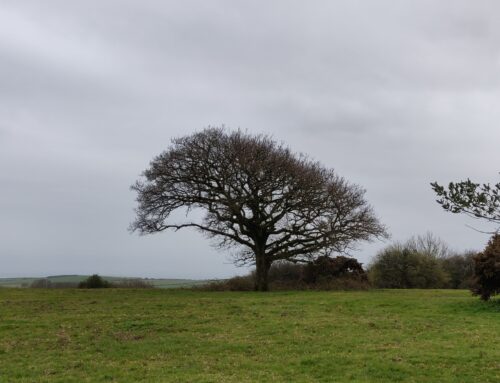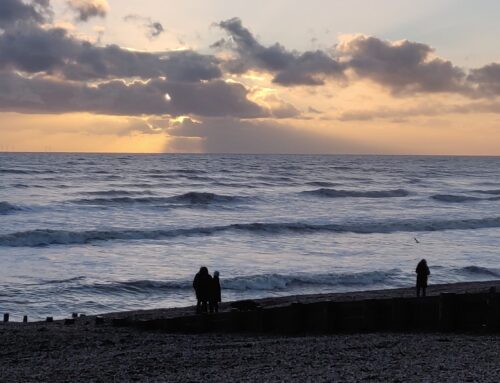I was going to write a post called what I have learned from swimming in the sea in winter. Ten short points, nothing particularly original, a bit about endorphins, a bit about doing the thing you think is impossible and possibly a mention of brown fat. Then I saw John O’Farrell’s tweet (gently) mocking ‘yet another’ cold water swimming piece in yesterday’s Guardian, plus a string of like minded comments. So I didn’t.
I’d write about shame instead; referencing Brené Brown, wondering what shame does to us, how it differs from guilt, how to counter it and what goes on for the shamer. But I realised I didn’t feel shame at his tweet. It is funny how predominantly women, plus some men, sail down to the beach in their dry robes on grim mornings. It must be an utter bore the way we go around afterwards, high as kites, exclaiming how wonderful it was to immerse in that grey, heaving, possibly slightly dirty, mass of English Channel. There is a lot of potential for clichés in the way we write about it; that must be annoying too. It’s a subject ripe for piss-taking.
And, you know, maybe we’ve heard enough about the benefits, and how it:
a) protects our brains against dementia;
b) activates our metabolisms and immune systems during a pandemic;
c) improves lung health to protect against COVID 19;
d) regulates our stress response;
e) nurtures our mental health through connection with nature and companionship during lockdown;
g) staves off depression during dark times.
I’m more interested in those that find hearing about it annoying.
It’s obvious, I suppose. Swimming in the sea, or a river, or an outdoor pool in February, whether you strip down to practically nothing or wear a wetsuit, isn’t very inviting if you’re not used to it. It can also be dangerous, if you stay in too long or don’t take care over the tides and the waves, or gasp in a lungful of water. I think the reason some people disparage these stories (rather than just say, bloody hell, really, you do that?) is because they can’t imagine anything they’d less like to do.
Which is completely fair enough. In a million years, I can’t imagine standing up in a club and telling jokes. I can’t imagine extemporising a political speech (or any speech without practising it word for word a thousand times). I can’t imagine singing a solo in any setting, or having a dancing lesson on the Brighton sea front or learning to roller blade from a standing start where there might be passers-by, or climbing a mountain (or even a wall) with ropes and stuff, or even getting on a horse – all activities which doubtless have a beneficial affect but feel borderline impossible to me. But would I mind reading about people that do have a go at these things and the benefits they feel?
Yeah, probably if they were really going on about it. There’s a happy balance (as in most things) between offering information while not ramming it home. There’s also a happy balance between recognising the irritation on hearing about it might be more to do with what’s going on in us, than anything intrinsically annoying about what’s being said.
Dry-robes – yeah okay they might be a bit of a statement but how else would we know who it’s safe to show off to?




